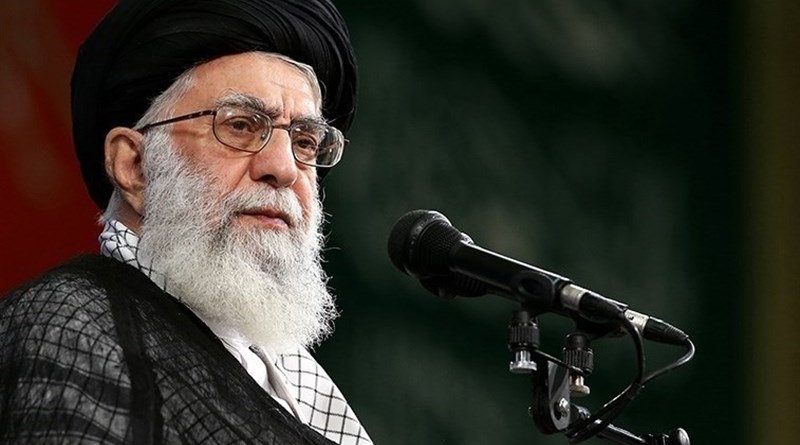Khamenei Struggling To Prove Regime Has Legitimacy In Iran – OpEd
By Arab News
By Dr. Majid Rafizadeh*
Iran’s paramount leader, Ayatollah Ali Khamenei, who has the final say on Iran’s domestic and foreign policies, is facing one of the most volatile and difficult years since he was appointed as the Islamic Republic’s supreme leader in 1989.
Khamenei and his hard-line base are in turmoil because of the developments that have taken place this month. Firstly, one of Khamenei’s closest friends and his confidant, Maj. Gen. Qassem Soleimani, was unexpectedly killed in an airstrike ordered by US President Donald Trump on Jan. 3.
Not only was the death of Soleimani considered to be a personal loss to the supreme leader, who shed tears at the Quds Force commander’s funeral, but the incident was also a significant humiliation for Khamenei’s regime, which constantly attempts to project power to other nations and seeks superiority and pre-eminence in the Middle East.
Khamenei attempted to take advantage of the situation by rallying the Iranian people behind the flag of the Islamic Republic. This was important for him because his government has been troubled by regular protests and demonstrations for the last two years. As a result, the supreme leader tried to project to the world that his political establishment and system of “Velayat-e faqih” (Guardianship of the Islamic Jurist) still enjoys legitimacy inside the country.
Many people did come to Soleimani’s funeral, which was a political victory from Khamenei’s perspective. This is why his speeches concentrated on boasting about the people’s support. For example, in a meeting with the people of Qom on Jan. 8, he said: “(Soleimani’s) martyrdom showed the whole world that the revolution is alive in our country. Some people wanted to pretend that the revolution is over and that it is dead — of course, some people are still trying to make this happen. However, his martyrdom showed that the revolution is alive.”
But Khamenei’s jubilance did not last long as, a few days later, many people in Iran turned against the regime once again when the theocratic establishment was compelled to acknowledge that it shot down a Ukrainian passenger plane, killing 176 innocent men, women and children.
As a result, Khamenei became the target of people’s anger. Protesters chanted, “Our shame, our decrepit leader,” “Death to Khamenei,” and an angry crowd in front of Amirkabir University in Tehran chanted, “Commander-in-chief (Khamenei) resign, resign.” People also objected to Khamenei’s revolutionary ideals, including his anti-American policy. “They are lying that our enemy is America, our enemy is right here,” some were heard chanting.
Meanwhile, Trump took to Twitter in an attempt to show the world that Khamenei had lost his legitimacy. He tweeted, in a post that was also translated to Farsi: “To the leaders of Iran — DO NOT KILL YOUR PROTESTERS. Thousands have already been killed or imprisoned by you, and the world is watching.” Trump added: “More importantly, the USA is watching. Turn your internet back on and let reporters roam free! Stop the killing of your great Iranian people!”
Khamenei immediately turned his attentions to the protests and the regime took measures to crack down on the demonstrators with brute force. In addition, to prevent the protests from endangering the ruling mullahs’ hold on power, the Iranian authorities — which at first denied any involvement in the downing of the Ukrainian jet — declared they had arrested those responsible. Iranian judiciary spokesman Gholamhossein Esmaili said “some individuals” were arrested after “extensive investigations.”
While some may express hope that the latest developments and protests might compel the Iranian regime to make concessions and address popular grievances, history shows us that the opposite is more likely to be true. In the weeks and months to come, expect Khamenei to instruct the regime to be more repressive, aggressive and violent.
This is due to the fact that, from the perspective of Iran’s supreme leader, concessions only manifest weakness. This is the only modus operandi that Khamenei has been familiar with since the establishment of the Islamic Republic in 1979. This is also the only strategy that Khamenei’s military organizations — including the Islamic Revolutionary Guard Corps, the Quds Force and their affiliated organizations — have been trained to carry out.
Khamenei is facing serious turmoil after four decades of ruling with an iron fist. He is struggling to show the international community that his government still enjoys legitimacy inside Iran, as protests and chants against him keep surfacing. He is also failing to counter the US sanctions and bring his government out of economic and political isolation.
• Dr. Majid Rafizadeh is an Iranian-American political scientist. He is a leading expert on Iran and US foreign policy, a businessman and president of the International American Council. Twitter: @Dr_Rafizadeh

